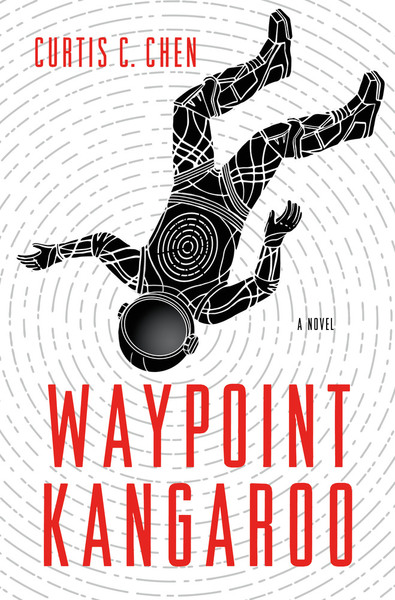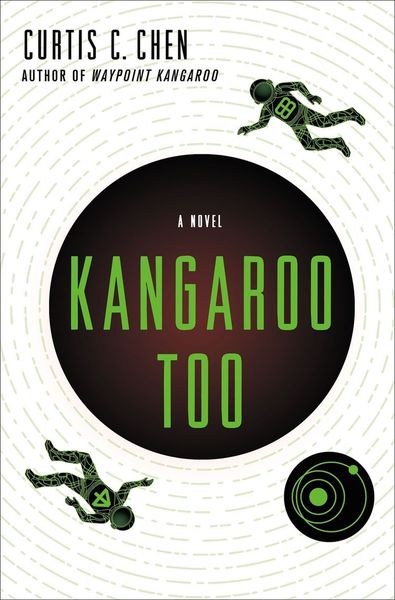In 500 Words or Less: Waypoint Kangaroo by Curtis C. Chen
 |
 |
Waypoint Kangaroo
By Curtis C. Chen
St. Martin’s Press (320 pages, $25.99 hardcover, $13.99 eBook, June 2016)
I met Curtis C. Chen at my first time out to the Nebulas (about this time last year), and I remember chatting with him in the con suite about Waypoint Kangaroo and its sequel, Kangaroo Too. The premise alone was enough for me to add it to my reading list right away: a covert agent in the near-future forced to go on vacation to Mars, but who can’t seem to avoid trouble. Oh, and he can open a window to a pocket dimension at will, which is why he’s so valuable – because otherwise, he’s a bit of a screw-up. But you know how reading lists get; they’re huge, and I never quite got to reading Waypoint, and felt like a jerk when I hung out with Curtis again at Can*Con and still hadn’t picked it up.
Now that I finally have, I feel even more like a jerk. Why?
Because the next time I write a science fiction adventure novel, I want to do it like Curtis C. Chen.
Take some of the best parts of James Bond and The Poseidon Adventure and the tone of Guardians of the Galaxy and you’ll get a sense for what Waypoint Kangaroo is like. There’s a protagonist who’s pretty skilled in some areas, but horribly inept in others, and just wants to do right by the agency he considers a family. The supporting characters around him are diverse and nuanced. You get a clear sense of the world and the intricacies of global politics several centuries from now without ever feeling infodumped (which is rare, and Chen pulls it off particularly well). And not only is there believable science minus the hard SF feel, but that realism is used to make the story more exciting, as opposed to duller. (Sorry, most hard science fiction bores me to tears.)
But the real treat is protagonist Kangaroo’s narrative voice. Is he a completely reliable narrator? Maybe not. But for a secret agent he’s not very skilled at hiding his hang-ups (or maybe his inner monologue is his main respite because he’s a secret agent) so it’s easy to see where he might go wrong – and then we’re surprised along with him when other unexpected things go badly. Chen goes so far as to apply Kangaroo’s sardonic sense of humor to the location markers at the start of each chapter, with descriptors like “Dejah Thoris, Deck 17, crew mess hall – 8 hours before I start dosing civilians with experimental biotech” – just one example of how the tropes of a spy thriller are turned on their head.
I’ve said here before that I’m always on the lookout for entertaining, soft science fiction, out of concern that it was becoming less popular. But Waypoint Kangaroo is yet another example that the subgenre is alive and well.
An Ottawa teacher by day, Brandon has been published in Daily Science Fiction, On Spec, PULP Literature, and elsewhere. Nominated for the Prix Aurora Awards yet? Brandon has three eligible short stories, which you can learn more about here. Also check out Brandon on Twitter (@B_Crilly).